Continuing the 10th Session program, on the afternoon of November 13, the National Assembly discussed in the hall the draft Law on E-commerce.
Protecting children's rights and safety
Discussing at the meeting, some National Assembly deputies proposed protecting the rights and safety of children on e-commerce platforms.
According to delegate Trinh Thi Tu Anh ( Lam Dong ): "With more than 90% of children aged 6 to 17 using the Internet and smart devices for at least 1 hour/day, there are currently about 15 million digital citizens growing up with phones, e-commerce platforms and AI algorithms that know children's preferences better than their parents. This is the potential customer group and the most vulnerable target of e-commerce platforms."
Listing some legal responsibilities that developed countries apply to e-commerce platforms to change their business models towards children, delegate Trinh Thi Tu Anh proposed adding an article on "Responsibility for protecting children in e-commerce," placing legal responsibility on the owners of large digital platforms.
Among the principles mentioned by delegates are: Completely banning advertising based on personal data, behavior or location of underage users; children's accounts must be private by default and provide features that allow children and parents to choose their display in real time, not personalized by algorithms; and building a child-friendly reporting button - using images or voices and handling complaints about harmful content within strict deadlines.
"This is an action to protect millions of digital citizens from algorithmic exploitation, ensure privacy and promote healthy consumption; at the same time affirm Vietnam's pioneering role in building a sustainable and humane digital economy ," delegate Trinh Thi Tu Anh emphasized.
Sharing the same view, delegate Nguyen Thi Viet Nga (Hai Phong) said that currently, livestream sales are not simply commercial activities but have become a form of entertainment content, attracting a large number of viewers, including children and minors. However, accessing livestreams is now too easy for all ages. Many children even use it proficiently, actively participate in interactions on livestreams and have made purchases.
"However, the draft Law does not have specific regulations to protect this group of people when participating in livestream sales," said delegate Nguyen Thi Viet Nga.
To protect children and minors from livestreams with inappropriate content and age-inappropriate product introductions, delegate Nguyen Thi Viet Nga proposed to study and supplement regulations requiring e-commerce platforms to control and classify livestream content by age, and display warnings when the content contains sensitive, dangerous, or inappropriate elements for children.
Along with that, livestreamers and sellers can choose the age classification mode to access livestream sessions selling products that are not suitable for each age group. When livestreams with content that is not suitable for customs, culture, legal regulations, and harmful to children are detected, there needs to be a reporting mechanism and coordination between the platform and the management agency to quickly remove that livestream content.
There needs to be a control mechanism before livestreaming to sell products.
Commenting on the draft Law, delegate Hoang Thi Thanh Thuy (Tay Ninh) assessed that the provisions in the draft Law have relatively fully defined the responsibilities of the three main entities in livestream sales activities, including: Sellers, livestreamers and platforms.
However, according to the delegate, when comparing with some real-life situations, such as cases of celebrities livestreaming to sell poor quality products, exaggerating the effects of functional foods or using "virtual seeding" techniques to manipulate buyers' trust, there are still some gaps that need to be clarified to increase the law's feasibility.
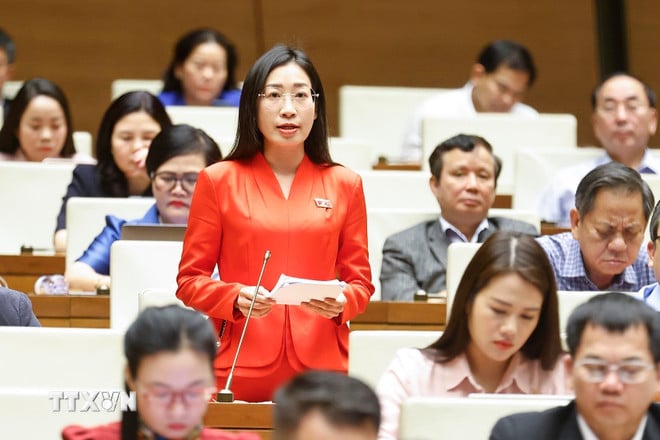
National Assembly delegate of Tay Ninh province Hoang Thi Thanh Thuy speaks. (Photo: Doan Tan/VNA)
According to delegate Hoang Thi Thanh Thuy, the obligation of livestreamers not to provide false information in the draft Law is still a matter of principle; the mechanisms for pre-broadcast control of items that pose a risk to public health have not been clarified. The regulation on storing livestream data for at least 1 year may not be enough to ensure that disputes or long-term violations are handled.
In addition, the draft Law has not clearly defined the right of consumers to access livestream recordings in case of disputes and the responsibility to provide recordings upon request of the management agency. In case the livestreamer provides information that exceeds the confirmed advertising content, there is no separate handling mechanism, especially the joint responsibility with the seller.
In addition, the platform is currently only bound by the obligation to remove infringing content, and there are no regulations related to controlling the algorithm that recommends prioritizing livestream display. Delegate Hoang Thi Thanh Thuy assessed that this is a factor that is believed to contribute to creating the effect of enticing customers to buy according to the virtual crowd.
To ensure the draft is more consistent with the rapidly evolving reality of livestream commerce, delegate Hoang Thi Thanh Thuy proposed adding a pre-live control mechanism for livestream sessions advertising the benefits, especially for products that affect health such as functional foods, cosmetics, etc.
“Sellers or livestreamers need to provide product profiles to e-commerce platforms for conditional review,” delegate Thuy proposed.
Commenting that "the law's vision is correct but the runway is not long enough for takeoff," delegate Be Trung Anh (Vinh Long) said: E-commerce is being identified as an important field, but this is not just an industry but the infrastructure of the digital economy. If the law only manages activities but does not create an ecosystem, this law is just like "a big airport" but lacks a control tower, the plane can take off but cannot take off.
Accordingly, the draft Law requires platforms to provide algorithm descriptions - which delegates said is "very progressive," but if there is a lack of specific guidance, the management agency may force businesses to disclose all source code or business secrets - delegate Be Trung Anh expressed concern and said that the regulation is correct in terms of objectives but avoids mistakes in implementation.
Regarding user data - the "heart" of e-commerce, delegate Be Trung Anh said that the draft Law allows platforms to authenticate, store and share user data, but if clearly limited, this provision will conflict with the Law on Personal Data Protection and pose serious risks to privacy.
Therefore, the delegate proposed adding a new provision, stipulating that data authentication and storage must comply with the principle of minimization, only collecting data necessary for transactions, and only sharing when there is a clear legal basis.../.
(TTXVN/Vietnam+)
Source: https://www.vietnamplus.vn/quoc-hoi-khoa-xv-bao-ve-tre-em-tren-nen-tang-thuong-mai-dien-tu-post1076797.vnp







![[Photo] Deep sea sand deposits, ancient wooden ship An Bang faces the risk of being buried again](https://vphoto.vietnam.vn/thumb/1200x675/vietnam/resource/IMAGE/2025/11/13/1763033175715_ndo_br_thuyen-1-jpg.webp)


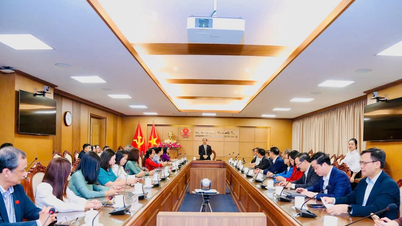

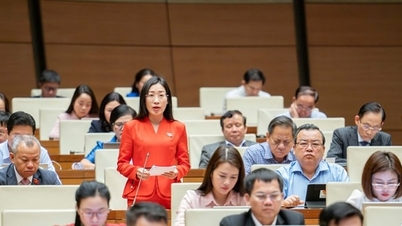



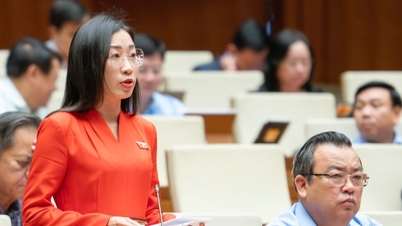






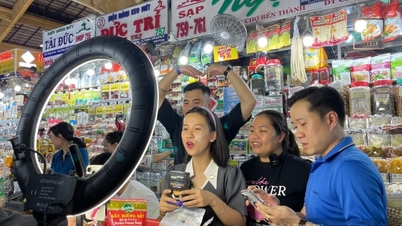







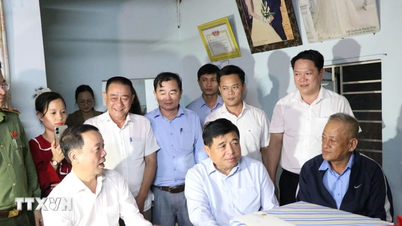
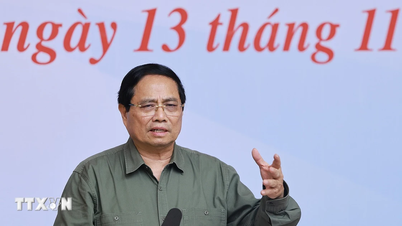






































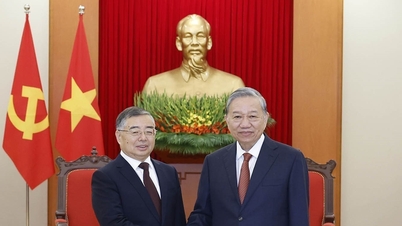
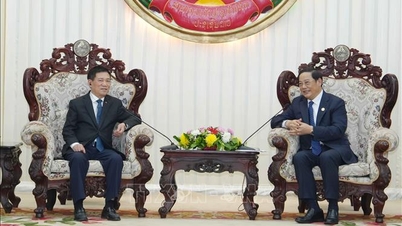









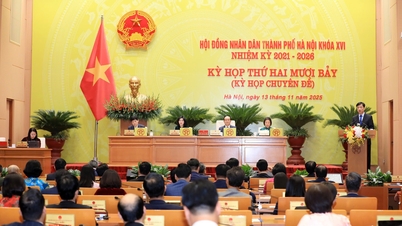

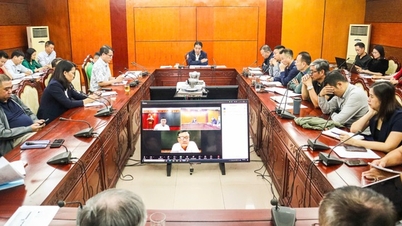

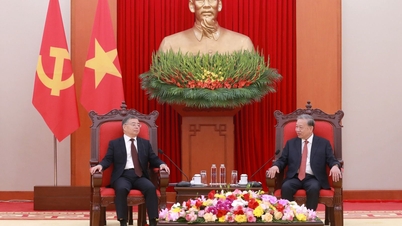
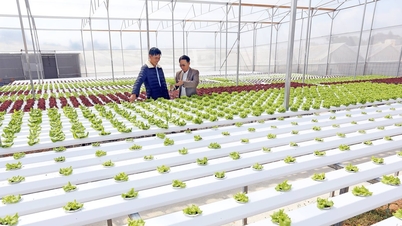








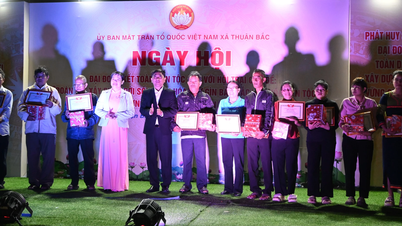




![Dong Nai OCOP transition: [Article 3] Linking tourism with OCOP product consumption](https://vphoto.vietnam.vn/thumb/402x226/vietnam/resource/IMAGE/2025/11/10/1762739199309_1324-2740-7_n-162543_981.jpeg)







Comment (0)